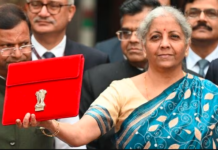GST stands for goods and service tax, levied by the government to replace all indirect taxes imposed by different states and authorities functioning within the nation. It is based on “one nation one tax” system that aims at boosting Indian economy by reinforcing the existing traditional tax system. This tax is likely to simplify and unify the indirect tax structure throughout the nation, as predicted by the economists.
Knowing that GST will be implemented on July 1, which is two days from today, here’s all that you need to know.
GST Implementation is likely to affect:
- Eating out
- Phone bills
- Online shopping
- Jewellery
- Banking and insurance
- Travelling
- Buying a car
- Movie tickets
- Processed foods
- Cement
However, there is good news for all the consumers.
- Prices for most of the groceries, household, and personal care products will remain unchanged for 6 to 8 weeks after the GST is put in place.
- Several products including toothpaste, cookies, soaps, and hair oils will be taxed at 18% under the GST compared to about 22% in the current indirect tax structure.
- Detergents, shampoos and skin care products will attract higher tax rate amounting to 28%.
- No changes in the milk price have been spotted yet. The managing director of Gujarat Cooperative milk marketing federation, MR. RS SODHI said that there would be drop in the prices of milk powder and baby food by 5%.
- Coca-cola India will increase the prices of its aerated drinks.
- A drop will be seen in the prices of the packaged drinking water brand Kinley.
Retailers and distributors suggest that products of Hindustan Unilever, Dabur, Colgate, and Britannia will carry the same price tag until August.
Implementation of GST is expected to boost the competitiveness and performance of the Indian manufacturing sector. Being a corruption free taxation system, the prices of the goods and services will reduce and it will also reduce the burden from the state and the central government.












